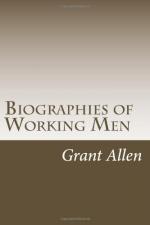At the end of two years in London, Telford’s skill and study began to bear good fruit. His next engagement was one which raised him for the first time in his life above the rank of a mere journeyman mason. The honest workman had attracted the attention of competent judges. He obtained employment as foreman of works of some important buildings in Portsmouth Dockyard. A proud man indeed was Thomas Telford at this change of fortune, and very proudly he wrote to his old friends in Eskdale, with almost boyish delight, about the trust reposed in him by the commissioners and officers, and the pains he was taking with the task entrusted to him. For he was above all things a good workman, and like all good workmen he felt a pride and an interest in all the jobs he took in hand. His sense of responsibility and his sensitiveness, indeed, were almost too great at times for his own personal comfort. Things will go wrong now and then, even with the greatest care; well-planned undertakings will not always pay, and the best engineering does not necessarily succeed in earning a dividend; but whenever such mishaps occurred to his employers, Telford felt the disappointment much too keenly, as though he himself had been to blame for their miscalculations or over-sanguine hopes. Still, it is a good thing to put one’s heart in one’s work, and so much Thomas Telford certainly did.
About this time, too, the rising young mason began to feel that he must get a little more accurate scientific knowledge. The period for general study had now passed by, and the period for special trade reading had set in. This was well. A lad cannot do better than lay a good foundation of general knowledge and general literature during the period when he is engaged in forming his mind: a young man once fairly launched in life may safely confine himself for a time to the studies that bear directly upon his own special chosen subject. The thing that Telford began closely to investigate was—lime. Now, lime makes mortar; and without lime, accordingly, you can have no mason. But to know anything really about lime, Telford found he must read some chemistry; and to know anything really about chemistry he must work at it hard and unremittingly. A strict attention to one’s own business, understood in this very broad and liberal manner, is certainly no bad thing for any struggling handicraftsman, whatever his trade or profession may happen to be.




